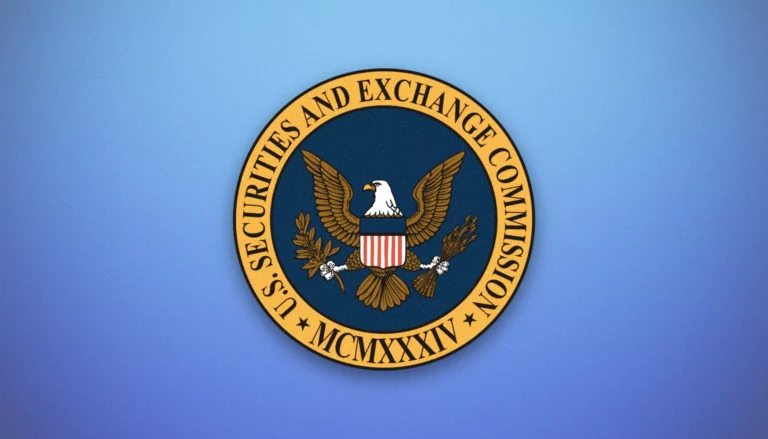This post is the seventh and final in a series examining the impact of the Jumpstart Our Business Startups Act (or JOBS Act) one year after its passage and focuses on Titles V and VI of the law and provides some final concluding thoughts.
Titles V and VI of the JOBS Act are closely related in that they both pertain to when private companies must register their securities under the Securities Exchange Act of 1934. Typically, after a startup has gone through multiple rounds of financing and has provided equity compensation to a large number of employees, it finds itself in a position where the number of shareholders it has triggers the requirement to register its securities and begin periodic public reporting of material information, in effect making it a public company. But this transition is not always desired by the company’s management or controlling shareholders.
Why would a company want to avoid going public? The compliance burdens on public companies go far beyond the periodic reporting obligations under the Securities Exchange Act. Public companies must contend with a myriad of additional laws and regulations such as the Foreign Corrupt Practices Act, Sarbanes Oxley, the “say on pay” rules, rules governing audit and compensation committees, federal proxy rules, and many others. The most famous example of a company that reportedly did not want to go public is Facebook. In January 2011, Facebook received large scale and unwanted press coverage about its alleged plans to raise capital through a single purpose “feeder” entity that would have kept its total number of shareholders of record below the threshold that would have required registration. Facebook eventually ended up going public and there is considerable debate about whether the government should be pushing companies to go public when they don’t want to. Titles V and VI seem at least partially a clear response to this debate.
Prior to the JOBS Act, under the Securities Exchange Act, an issuer was required to register its securities with the SEC if it had total assets exceeding $10 million and a class of equity securities with 500 or more holders of record. Title V increased the number of holders of record triggering the registration requirement from 500 persons to 2,000 persons as long as the number of non-accredited holders of record remains under 500. Title V also amended the Securities Exchange Act to provide that this number of holders of record does not include employees who acquired their securities through an employee compensation plan that is exempt from federal registration requirements. The number also does not include holders who purchased their securities through crowdfunding offerings under Title III of the JOBS Act.
To implement the amendment pertaining to employee security holders, Title V requires the SEC to adopt safe harbor provisions that issuers can follow when determining whether security holders received their securities pursuant to an exempt employee compensation plan. Title V does not impose any deadline on the SEC to carry out this rulemaking directive. The SEC has not yet adopted rules pursuant to Title V, but has issued guidance that all of Title V (including the provision related to not counting shareholders from employee compensation plans, albeit without any safe harbor) went into effect immediately on passage of the JOBS Act.
Title VI of the JOBS Act raises the threshold for banks and bank holding companies for mandatory Securities Exchange Act registration from 500 shareholders of record to 2,000 shareholders of record (and unlike Title V, there is no limitation to the number of non-accredited investors). After the passage of the JOBS Act, a bank or a bank holding company is required to register its securities when its total assets exceed $10 million and any class of its equity securities is held of record by 2,000 or more persons. As with other types of issuers, this number does not include employees who acquired their securities through an exempt employee compensation plan or holders who acquired their securities through crowdfunding offerings.
Title VI also amended Section 12(g)(4) of the Securities Exchange Act, which provides a mechanism for “deregistration.” Issuers may terminate the registration of certain securities by filing a certification with the SEC that the number of holders of record of the class of securities in question has fallen to less than 300 persons. Title VI sets the threshold at 1,200 persons for banks and bank holding companies. (It remains 300 persons for other types of issuers.)
Title VI requires the SEC to issue final regulations to implement Title VI not later than one year after the date of enactment of the JOBS Act, which was April 5, 2012. As with the rest of the deadlines within the JOBS Act, this deadline was not met and it is not clear when it will ever be met. This is of little consequence to most companies (since Title VI only applies to banks) and, as with Title V, the SEC has issued guidance that Title VI already went into effect immediately.
I wonder whether raising the threshold for registration under the Securities Exchange Act will be of any significant value to large private companies seeking to remain private, because of the requirement that a company must still register if it has 500 or more holders of record that are not accredited investors. It is unlikely that most companies will have up to date information on the financial status of their shareholders as an investor’s status may change after the initial purchase of shares or shares may be resold to new shareholders under Rule 144. Therefore, I’m not sure how any company with significantly more shareholders of record than 500 can safely rely on the increased standard. The limitation on the number of non-accredited investors seems like another example of a compromise made during the legislative process that ends up crippling the overall provision to the point where it is of little value. On the other hand, the provision which exempts shares held by employees who received their shares under an equity compensation plan will be useful, because companies will have a better ability to keep track of these shares and their holders’ status as employees.
Concluding Thoughts
I have found that when the JOBS Act is mentioned, people tend to have one of two reactions. Some react with enthusiasm about the possibilities of crowdfunding and talk about how great it is the Congress “legalized” it (which of course it didn’t). Others react with scepticism that the bill was little more than an attempt by Congress to show that it was doing something about a bad economy in an election year. This second group usually believes that the JOBS Act will either have no effect whatsoever or be the catalyst for a deluge of fraudulent securities offerings. As in the first group, this second group mostly thinks of crowdfunding when the JOBS Act is brought to mind. This is a product of the fact that crowdfunding gets a vast majority of the attention in news coverage about the JOBS Act.
Of course the crowdfunding provision (1) has made no difference so far because of delays in the SEC’s rulemaking, (2) isn’t likely to make any difference in the near future (because I expect those delays to continue and when the rules eventually come out, the investor protection groups will have an absolutely ferocious reaction causing further delays), and (3) possibly will never have any significant impact if the implementing regulations of the crowdfunding law make it infeasible to use. But the JOBS Act is more than just a crowdfunding law. The provision related to online angel investment platforms may help legitimize these platforms and make them a great tool for startups looking for capital. The removal of the ban on general solicitation may also make Regulation D offerings easier (or harder if the SEC piles on more requirements as it has been asked to do). Finally, the IPO on-ramp already has had the effect of making the IPO process less risky and of easing the compliance burden for companies once they do go public. But these are, at best, modest changes and certainly not anything that could be called a game changer.
So now, a little over a year after the passage of the JOBS Act, it is safe to say the JOBS Act has had a limited impact. There is a good reason for that. In making a poorly constructed attempt to balance the need to reduce securities compliance burdens with the need to have effective regulations which prevent fraud and other wrongdoing, Congress may have ended up passing a law that has little real world effect. Perhaps as some of the provisions that have yet to be implemented come into effect, such as crowdfunding and Regulation A+, the JOBS Act may start to have a greater impact. But for now, the JOBS Act remains a work in progress.
© 2013 Alexander J. Davie — This article is for general information only. The information presented should not be construed to be formal legal advice nor the formation of a lawyer/client relationship.




